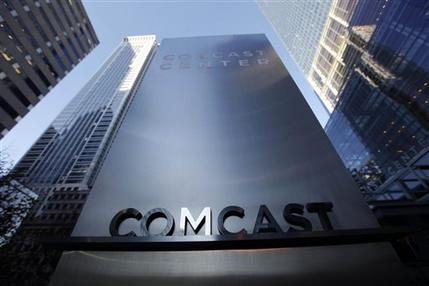Sources: Comcast/TWC Deal Getting D.C. Pushback

The smarter way to stay on top of broadcasting and cable industry. Sign up below
You are now subscribed
Your newsletter sign-up was successful
The prospects for the Comcast/Time Warner Cable merger appeared to take a hit Wednesday following a report in the Wall Street Journal that FCC staffers were recommending the deal be referred to an administrative law judge for a hearing. The chairman's office declined comment.
An industry source speaking on background said he had conversations with senior FCC staffers who had suggested the ALJ route was likely, but had not said so explicitly. Other industry sources concurred that was their sense as well.
A source inside the FCC confirmed thecommision's deal-vetters had signaled they would recommend adjudication.
If so, that lengthy process, essentially a trial with arguments and evidence, could be a deal killer. There is currently an August breakup trigger for the proposed merger.
In 2011, for example, AT&T and T-Mobile withdrew their merger proposal after the FCC signaled it was designating the deal for a hearing before the ALJ, which it does if it is not going to approve the deal or has major issues with it.
Comcast has continued to play up the deal's benefits in blog posts about extending industry-leading cybersecurity protections to TWC systems, and defending its Internet Essentials broadband subsidy from critics. Company sources suggested last week that reports of DoJ disaffection were off the mark, but the momentum appeared clearly on the side of deal opponents, helped by reports of Justice Department concerns as well that the resulting company would be too big.
Comcast met with Justice and FCC officials about the deal Wednesday, but Comcast wasn't talking about the outcome. By this time in the vetting process, DOJ is likely getting down to talking about conditions—usually divestitures—or deciding to file suit against the deal.
The smarter way to stay on top of broadcasting and cable industry. Sign up below
“We had one in a series of meetings with the Department of Justice today, as well as another meeting with the FCC," Comcast said in a statement. "As with all of our DOJ discussions in the past and going forward, we do not believe it is appropriate to share the content of those meetings publicly, and we, therefore, have no comment. Similarly, our only comment on FCC meetings will be our filed ex parte communication."
As with last week's story about Justice staffer concerns with the deal—suggesting DOJ could sue to block it—deal critics were quick to leverage the story to hammer the deal anew.
"If the news from the FCC is true, it would mean that Internet users can breathe a sigh of relief," said Free Press policy director Matt Wood. "The FCC seems to have heard the nearly one million Americans who have told Washington that the proposed merger helps only the people in the executive suites of Comcast and Time Warner Cable."
Coming to the deal's defense was Berin Szoka of TechFreedom. "Blocking the Comcast-TWC merger won’t actually do anything to increase competition, encourage deployment or promote adoption among the underserved,” he said. “The two companies don’t compete with each other in any broadband market. Making competition easier requires a lot of small reforms, none of which will make headlines, but together, will help telcos compete with cable providers, help new players like Google Fiber enter the market, and make wireless a stronger alternative.”
Contributing editor John Eggerton has been an editor and/or writer on media regulation, legislation and policy for over four decades, including covering the FCC, FTC, Congress, the major media trade associations, and the federal courts. In addition to Multichannel News and Broadcasting + Cable, his work has appeared in Radio World, TV Technology, TV Fax, This Week in Consumer Electronics, Variety and the Encyclopedia Britannica.

